Ureshii Hinamatsuri
Akari wo tsukemasho bonbori ni
Ohana wo agemasho momo no hana
Gonin bayashi no fue daiko
Kyou wa ureshii HinamatsuriOdairi-sama to ohina-sama
Futari narande sumashigao
Oyome ni irashita neesama ni
Yoku nita kanjyo no shiroi kaoKin no byoubu ni utsuru hi wo
Kasuka ni yusuru haru no kaze
Sukoshi shirozake mesaretaka
Akai okao no udaijinKimono wo kikaete obi shimete
Kyou wa watashi mo haresugata
Haru no yayoi no kono yoki hi
Naniyori ureshii HinamatsuriLyricist:YAMANO Saburou(SATOU Hachiro)
Composer:KAWAMURA Naonori(KAWAMURA Kouyou)
in 1935
Happy Hinamatsuri
Let’s turn on the lights on the ‘bonbori’
Let’s give flowers to decorate peach blossoms
“Goninbayashi” performs with flutes and drums
Today’s a happy Hinamatsuri
Odairi-sama and Ohina-sama
Sitting side by side, looking so composed.
My sister, who is now a bride,
Kanjyo’s white face very resembles
The light that shines on the gold folding screen
Slightly rocking the spring breeze
A little white sake, perhaps.
Red-faced Minister of the Right
I changed into my usual kimono and put on my obi
Today is a day,my moment of glory
This fine spring day of Yayoi
The most joyous Hinamatsuri

Celebrating Hina Matsuri: Japan’s Enchanting Festival for Girls’ Day
Every year on March 3rd, Japan celebrates a delightful spring tradition known as Hina Matsuri, or “Girls’ Day.” Also referred to as Momo no Sekku (Peach Festival), this special occasion coincides with the blooming of plum and peach blossoms following the traditional start of spring (Risshun). Families pray for the health and happiness of young girls by displaying elegant hina dolls, which represent members of a historic imperial court.
While many Japanese households arrange these dolls on a tiered stand, regional variations highlight unique customs such as Nagashi-bina (floating dolls set adrift on rivers to carry away misfortune) or Tsurushi-bina (colorful hanging ornaments). At the center of a typical hina display, you’ll find a lord and princess figure—often referred to as Odairi-sama—surrounded by court attendants called San-nin-kanjo, who serve the princess, and Gonin-bayashi, a group of five musicians playing festive tunes. The display also includes Zuijin (court guardians), featuring a left minister (Sadaijin) and a right minister (Udaijin). On the lower tiers, civilian figures known as shichou appear, symbolizing people tasked with everyday responsibilities.
By Sakaori (talk) – Own work, CC BY-SA 3.0, Link
In more affluent or traditionally-minded communities—especially in rural areas—you might encounter multi-tiered displays showcasing numerous dolls, miniature furniture, and intricate decorations. Meanwhile, in modern urban settings, busy lifestyles and limited living spaces have encouraged the popularity of compact hina sets that emphasize sleek designs. These may include highlights like Dairi-bina (simplified lord-and-princess dolls), Bonbori (paper or silk lanterns), as well as iconic festival foods like Shirozake or Amazake (sweet non-alcoholic rice drinks) and Hishimochi (diamond-shaped rice cakes in vibrant colors).
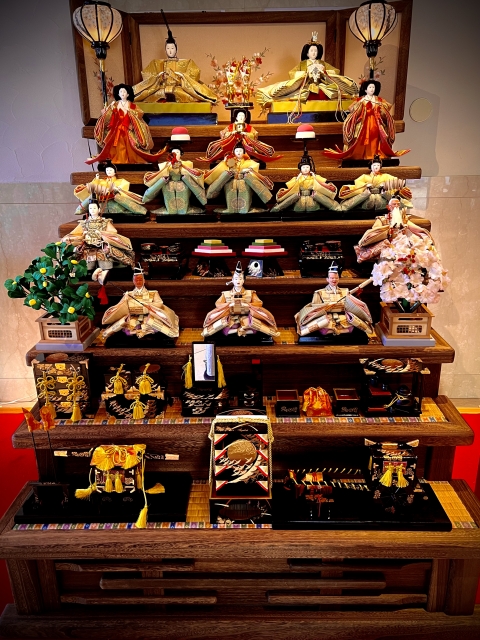
Interestingly, the well-known Japanese children’s song celebrating the festival mentions “Odairi-sama and Ohina-sama” as if they were separate entities. Historically, however, Odairi-sama alone already indicates both the lord and princess. This detail led lyricist YAMANO_Saburou (an alias of SATOU_Hachirou) to express regret over the confusion in later years—yet the phrasing has become a beloved part of this seasonal tune. Whether you encounter an elaborate, multi-tiered hina arrangement or a modest, contemporary display, Hina Matsuri remains a cherished symbol of springtime in Japan and a testament to the country’s enduring cultural traditions.
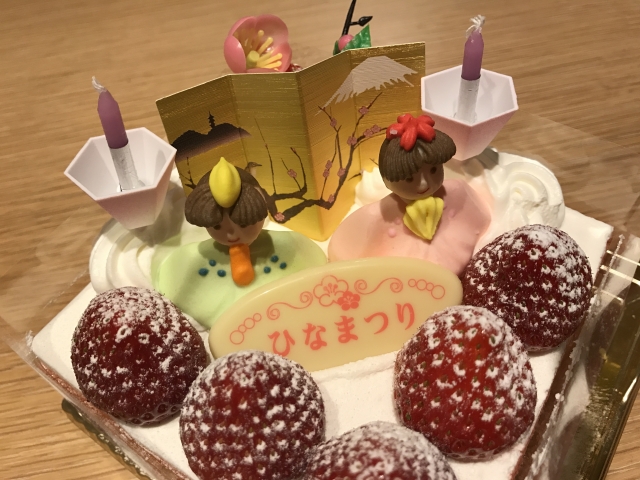
Hina Cake
▼Smaller chicks decorations, but with full members?
▼The town of dolls, the road to Iwatsuki, Saitama, and related sites.
▼Hinamatsuri events throughout Japan
▼Even traditional and prestigious hotels in Tokyo hold gorgeous Hinamatsuri events.
▼Full explanation of Hina decorations
▼During the period, the city is full of hina dolls.wow!

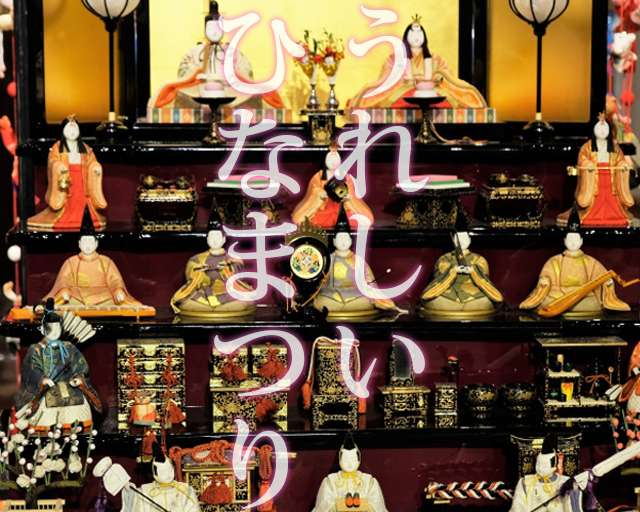
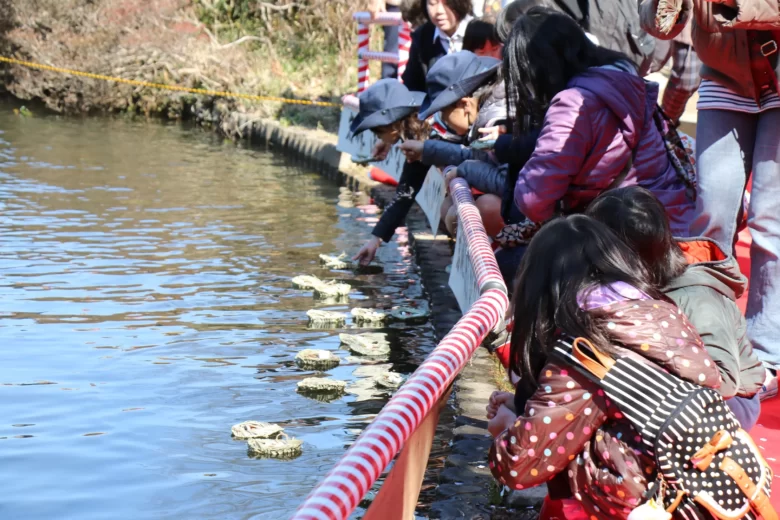
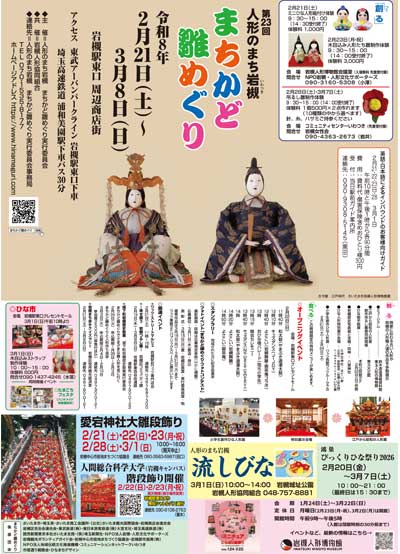
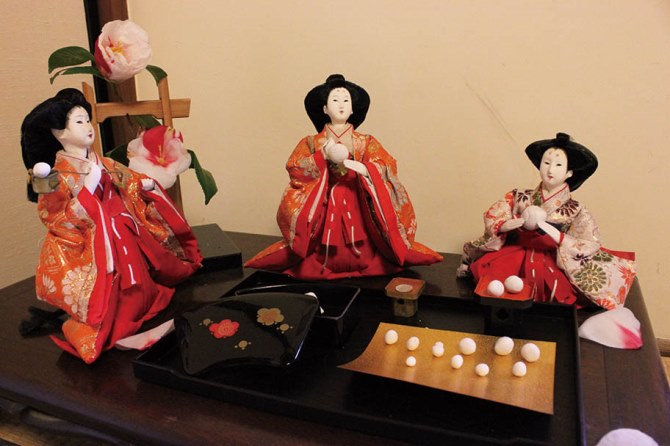
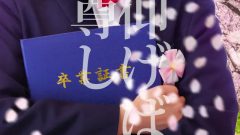
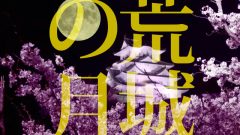
コメント